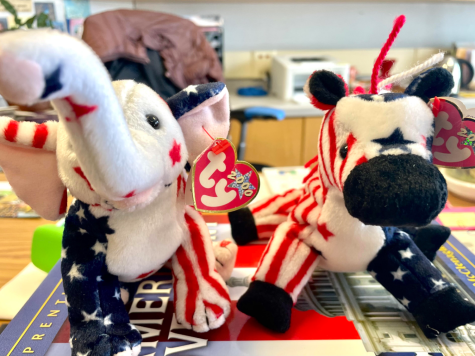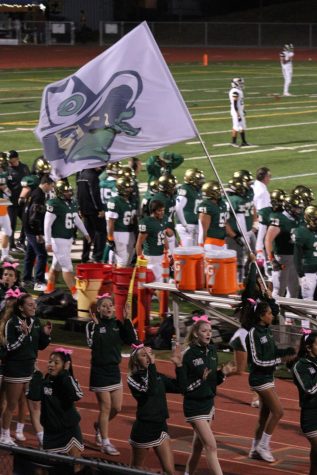Attack of the Gulls
There are millions of species on Earth. Together, we share this planet. We live our lives, and they live theirs. We have no right to interfere with other species, which also means that other species have no right to interfere with us. Seagulls, a type of bird we interact with everyday, are gradually becoming an issue for us. According to an article written on The Huffngton Post by Robin Wilkey, “The San Francisco Bay Area gull population has exploded from 24 birds in 1980 to 53,000 in 2013, making it one of the largest in the world. According to the Bay Area News Group, the number has increased by 41 percent in the past two years alone.”
In the UK, after consuming flying ants that contained formic acid, seagulls became extremely badly-behaved, almost as if they were “drunk.” The seagulls “disturbed humans with non-stop high-pitched screeching,” they “stole food directly out of people’s hands,” and they flew around streets carelessly smashing into cars. As a consequence, “dead bodies of seagulls were left all over streets.”
Now many of you may be thinking, “Those are seagulls in the UK. I live in Petaluma. It has nothing to do with me.” If you are thinking that, you’ve just made a horrendous mistake. Seagulls are all around us. It doesn’t matter if you are a boy or a girl, rich or poor, tall or short, we all live in the shadow of seagulls. They constantly threaten us with their ability to defecate on our heads without us knowing. This has to stop.
As stated in a survey previously conducted for a biology project by a student from our school, 10% of those interviewed had no problem with seagulls on campus, 80% disliked them, and 10% hated them. A very large portion had negative responses towards seagulls.
I am one of the many victims of seagulls. A little more than two years ago, I experienced a very tragic incident on campus. It was a very sunny day with a slight breeze — perfect weather to sit outside and enjoy your lunch with your friends. My friend and I sat down and started eating lunch. We were having a very great time, but that happiness didn’t last long. Suddenly, I felt something wet on my head. I paused and thought to myself “It’s not raining today, it can’t be rain, but if it’s not rain, then what exactly just landed on my head?” Very slowly, I turned to look at my friend. She stared back at me with her mouth wide open. Her face was drained of color. As she began to clean up whatever liquid matter was on my head with a napkin, I came to realize that a seagull just defecated on me. Since then, I have been traumatized. I have been emotionally scarred. Whenever I am walking outside and any bird flies over me, my hand automatically protects the part of my head that was once contaminated by a seagull’s discharged waste matter.
As stated by biology teacher Kelley Holly, “As disturbing as this may sound, the seagulls we see everyday know our bell schedule. They’re not on campus on holidays or weekends. They are only here when school starts, they linger around shortly during class time, and they leave when school is dismissed.” The reason behind the seagull apocalypse then becomes clear. It is us, the students. Seagulls are parasites that latch on to the food and trash students leave sitting around campus. With food scattered everywhere, seagulls are practically eating at a free buffet everyday, and who wouldn’t enjoy that? But if we take away the food at the buffet, would seagulls still want to come? No. Do not leave behind your trash or leftovers, throw it away.
Some students think it’s unnecessary for us to try this hard just to keep seagulls off campus, and they think their food is perfectly safe from seagulls, and they think seagulls have the right to roam around campus, and they think that their heads are safe from seagull waste matter. But do not underestimate the power of seagulls. Do not think that you will not be affected by seagulls in your four years of school on this campus. Throw your trash and leftovers away; pick up any garbage or food you see around the campus. A simple gesture can significantly decrease the number of seagulls around us everyday. If we don’t try to the best of our efforts to stop the seagulls, any day, anytime, it will happen to you. Spread the message, inform your friends. Together we can prevent these flying rats from taking over our school! Together, we can make a better environment for each and every one of us. Together, we can stop the seagulls.











